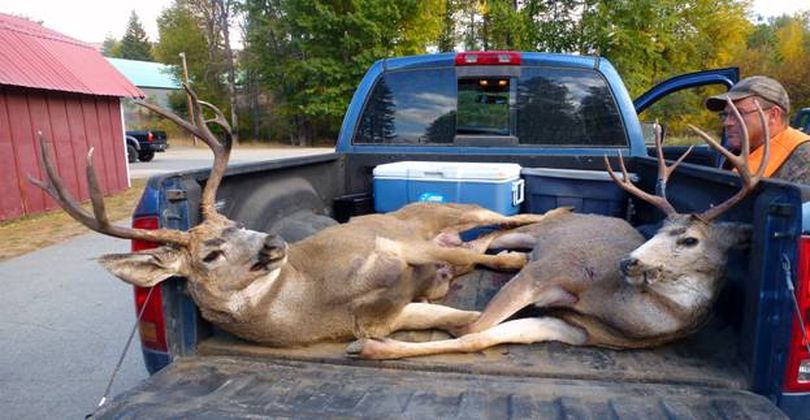Hunters AND anglers must stop at Idaho check stations

WILDLIFE MANAGEMENT -- Idaho law requires hunters AND ANGLERS to stop and Fish and Game check stations.
The code says, "all sportsmen, with or without game, must stop at Fish & Game check stations."
All those who are hunting or fishing that day, or are returning from an overnight hunting or fishing outing, are required to stop.
"Each year, a few sportsmen do not stop at check stations because they were not successful on that specific trip," says Phil Cooper, IFG spokesman in Coeur d'Alene. "They see the signs, but think the instructions don't apply to them and continue on their way.
"However, information about a trip where nothing was harvested is also recorded. Citations can be issued to those who have spent the day in the field and do not stop."
Read on for more details about the two types of check stations the state runs.
The Idaho Fish and Game Department runs two types of check stations:
Management Check Station data is most accurate and meaningful when all hunters and anglers comply with the requirement to stop. It is important that hunters stop to give biologists information relating to the trip they are returning from. The management check stations serve as a helpful immediate measure of how the season is going. The information provides the short term ability to compare hunter success to previous years.
-
Final season success and harvest figures are derived from the final mandatory checks on some species, harvest reports, check station data and telephone surveys.
Impromptu check stations on lesser traveled roads stop all vehicles and divert hunters or anglers aside to answer additional questions. These ‘Enforcement Check Stations’ may be set up by Conservation Officers at any time of the day or night, and are intended to enforce Idaho wildlife laws and orders.
When at either type of check station, hunters and anglers are asked a series of questions about how many occupants of the vehicle were hunting or fishing, which big game unit they were in, and how many animals of which species have been harvested. At a check station, you are required by law to produce all fish or game in possession for inspection. It usually takes just a few minutes.
Those species for which a tag and mandatory check is required will be checked, and data such as age and sex recorded. This can save you a trip to check in your animal at a later date.
You may also complete your requirement to file a harvest report if you have harvested a deer or elk, or if you are done hunting for the season. Simply complete the form and drop it off at the check station and you will be finished with reporting your hunting results for that species for the year.
Please stop in at every check station you encounter as you travel to or from hunting and fishing outings. The information you provide is important to successful management of the wildlife resource we enjoy in Idaho. You can also ask questions and get information about how the season is progressing.
Info: IDFG Panhandle Region Office, (208) 769-1414.
